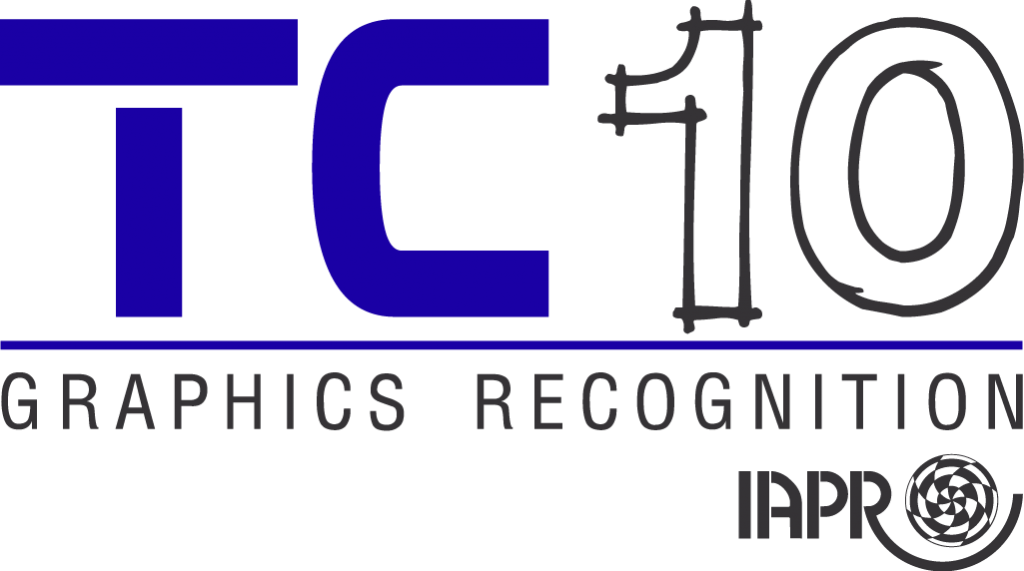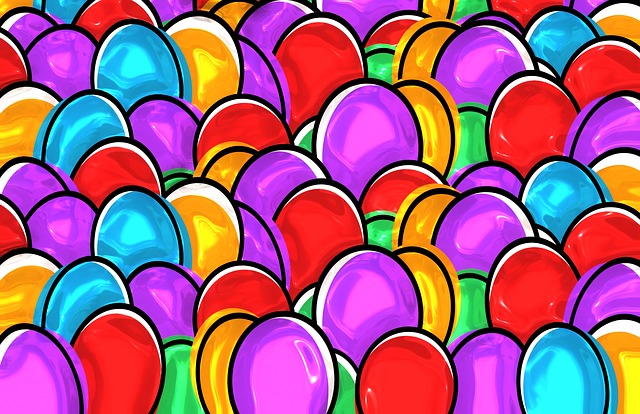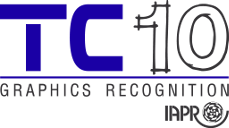

Welcome to the April edition of the TC10 newsletter.
In this edition, you will find the updated call for papers for GREC 2019 with two types of submission (short/full papers), the last call for participation at ICDAR competitions, the call for nominations for ICDAR 2019 awards, the call for hosting proposal for ICDAR 2023 and the current special issues at PRL.
Happy Easter!
Christophe Rigaud
IAPR-TC10 Communications Officer
Table of content:
1) Upcoming deadline and events
2) GREC 2019 workshop (updated)
3) ICDAR 2019 competitions
4) ICDAR 2019: Call for Nominations for Awards
5) ICDAR 2023: Call for Hosting Proposal
6) PRL: Special Issue on Hierarchical Representations
7) PRL: Special Issue on PR and AI on cultural heritage
8) Jobs offers (new)
Call for Contributions: please contribute to TC10 newsletters, by sending any relevant news, event, notice, open position, dataset or link to us on iapr.tc10@gmail.com
1) Upcoming deadlines and events
2019
- May 1st nomination submission deadline for ICDAR 2019 Awards
- May 8-10 conference DATECH 2019, Brussels, Belgium
- May 20 paper submission deadline for GREC 2019
- May 30 paper submission deadline PRL Special Issue “Hierarchical Representations”
- June 1st hosting proposal deadline for ICDAR 2023
- June 30, paper submission deadline PRL special issue “Cultural Heritage”
- September 20-21 workshop GREC 2019, Sydney, Australia
- September 22-25 conference ICDAR 2019, Sydney, Australia
- October 27-3/11 conference ICCV 2019, Seoul, Korea
- November 13 paper submission deadline for DAS 2020
2020
- May 17-20, workshop DAS 2020, Wuhan, China
2) GREC 2019 workshop (update)
GREC workshops provide an excellent opportunity for researchers and practitioners at all levels of experience to meet colleagues and to share new ideas and knowledge about graphics recognition methods. Graphics Recognition is a subfield of document image analysis that deals with graphical entities in engineering drawings, comics, musical scores, sketches, maps, architectural plans, mathematical notation, tables, diagrams, etc.
The aim of this workshop is to maintain a very high level of interaction and creative discussions between participants, maintaining a “workshop” spirit, and not being tempted by a “mini-conference” model.
For this edition, authors are invited to submit two types of paper :
- Full papers describing complete works of research (up to 6 pages). They will undergo a rigorous review process with a minimum of 2 reviews considering the originality of work.
- Short papers providing an opportunity to report on research in progress and to present novel positions on graphic recognition (up to 2 pages). Short papers will also undergo review and will appear in an extra booklet, not in the official proceedings. The booklet will be available on the GREC 2019 website.
Full papers will be published according to the same policy and conditions of ICDAR 2019 conference papers (format, length, publication site). See ICDAR guidelines for more information.
Short papers have to respect the same format than full papers but within the limit of 2 pages.
Important dates
- Submission deadline: May 20, 2019
- Acceptance notification: June 15, 2019
- Camera ready due: June 30, 2019
- Main Conference: September. 20 – 21, 2019
3) ICDAR 2019 competitions related to graphics recognition
ICDAR2019 will organize a set of competitions dedicated to a large set of document analysis problems. You are cordially invited to participate to this scientific event that will be a very good opportunity to objectively compare the quality of algorithms on different categories of challenges. You will find the full list of competitions here. The following selection are either related to graphics recognition or been asked to be promoted by some members of TC10 community
- ICDAR 2019 Competition on Fine-Grained Classification of Comic Characters, registration deadline: passed
- ICDAR 2019 Competition on Object Detection/Recognition in Floorplan image, registration deadline: passed
- ICDAR2019 Competition on “Scanned Receipts OCR and Information Extraction, registration: passed
- ICDAR2019 Competition: “Challenge on Multi-lingual Scene Text Detection and Recognition”, registration deadline: 2 May
- ICDAR2019 Competition on “Form Understanding in Noisy Scanned Documents”, registration deadline: passed
4) ICDAR 2019: Call for Nominations for ICDAR 2019 Awards (repost)
Call for Nominations for ICDAR 2019 Awards
International Conference on Document Analysis and Recognition (ICDAR)
http://icdar2019.org
The ICDAR Award Program is an established program designed to recognize individuals who have made outstanding contributions to the field of Document Analysis and Recognition in one or more of the following areas:
o Research
o Training of students
o Research/Industry interaction
o Service to the profession
Every two years, two awards categories are presented. Namely, the IAPR/ICDAR Young Investigator Award (less than40 years old at the time the award is made), and the IAPR/ICDAR Outstanding Achievements Award. Each award will consist of a token gift and a suitably inscribed certificate. The recipient of the Outstanding Achievements award will be invited to give the opening keynote speech at the ICDAR 2019 conference, introduced by the recipient from the previous conference.
Nominations are invited for the ICDAR 2019 Awards in both categories.
The nomination packet should include the following:
1. A nominating letter (1 page) including a brief citation to be included in the certificate.
2. A brief vitae (2 pages) of the nominee highlighting the accomplishments being recognized.
3. Supporting letters (1 page each) from 3 active researchers from at least 3 different countries.
A nomination is usually put forward by a researcher (preferably from a different Institution than the nominee) who is knowledgeable of the scientific achievements of the nominee, and who organizes letters of support.
Submission procedure is strictly confidential, and self-nominations are not allowed.
Please send nominations packets electronically to the Awards Committee Co-Chairs Dimosthenis Karatzas [dimos@cvc.uab.es ] and Alicia Fornes [ afornes@cvc.uab.es] .
Deadline: May 1st, 2019, but early submissions are strongly encouraged.
The final decision will be made by the Awards Committee which is composed of the ICDAR advisory board and the previous awardees.
ICDAR Advisory Board
5) ICDAR 2023: Call for Hosting Proposals (repost)
CALL FOR PROPOSALS TO HOST ICDAR2023
International Conference on Document Analysis and Recognition (ICDAR)
The ICDAR Advisory Board is seeking proposals to host the 17th International Conference on Document Analysis and Recognition, to be held in 2023 (ICDAR2023).
ICDAR is the premier IAPR event in the field of Document Analysis and Recognition with 300 to 500 participants. The aim of this conference is to bring together international experts to share their experiences and to promote research and development in all areas of Document Analysis and Recognition.
Any consortium interested in making a proposal to host an ICDAR should first familiarize themselves with the”Guidelines for Organizing and Bidding to Host ICDAR” document which is available on the TC10 and TC11 websites(www.iapr-tc10.org and www.iapr-tc11.org, respectively).
A link to the most current version of the guidelines appears below. Small updates in the guidelines are expected during the next few weeks, so please check on the Web site of TC11 for the latest version.http://www.iapr-tc11.org/mediawiki/images/ICDAR_Guidelines_2016_02_27.pdf
The submission of a bid implies full agreement with the rules and procedures outlined in that document.
The submitted proposal must define clearly the items specified in the guidelines (Section 5.2).
It has been the tradition that the location of ICDAR conferences follows a rotating schedule among different continents.Hence, proposals from America are encouraged. However, high quality bids from other locations, for example, from countries where we have had no ICDAR before, will also be considered. Proposals will be examined by the ICDAR Advisory Board.
Proposals should be emailed to:
– Dr. Dimosthenis Karatzas at dimos@cvc.uab.es
– Dr. Alicia Fornes at afornes@cvc.uab.es
Deadline: June 1, 2019
ICDAR Advisory Board
6) Pattern Recognition Letters : Special Issue on Hierarchical Representations (repost)
The proposed virtual special issue will consider extended and updated versions of papers published at the recent ICPRAI 2018 conference as well as submissions from anybody proposing innovative methods in the field of image representation with emphasis, but not restricted to computer vision and image processing, medical imaging, 2D and 3D images, multi-modality, remote sensing image analysis, image indexation and understanding.
Image representations based on hierarchical, scale-space models and other non-regular / irregular grids have become increasingly popular in image processing and computer vision over the past decades. Indeed, they allow a modeling of image contents at different (and complementary) levels of scales, resolutions and semantics. Methods based on such image representations have been able to tackle various complex challenges such as multi-scale image segmentation, image filtering, object detection, recognition, and more recently image characterization and understanding, potentially involving higher level of semantics.
See more…
7) Pattern Recognition and Artificial Intelligence Techniques for Cultural Heritage special issue (repost)
Artificial Intelligence is rapidly contaminating new areas of our life day by day. On the other hand, the management of Cultural Heritage is increasingly in need of new solutions to document, manage and visit (even virtually) the enormous amount of artifacts and information that come from the past. The contamination of these two worlds is now a reality and creates the bounds of the main topics of this Virtual Special Issue (VSI).
8) Job offers (new)
— Post-doc position – L3i – La Rochelle France —
Title : Recognition of text with variable styles in comics books
The L3i laboratory has one open post-doc position in computer science, in the specific field of document image analysis and pattern recognition
Duration: 12 months
Position available from: Mai 1st, 2019
Salary: approximately 2100 € / month (net)
Place: L3i lab, University of La Rochelle, France
Specialty: Computer Science/ Image Processing/ Document Analysis/ Pattern Recognition
Contact: Jean-Christophe BURIE (jcburie [at] univ-lr.fr)
Position Description
The L3i is a research lab of the University of La Rochelle. La Rochelle is a city in the south west of France on the Atlantic coast and is one of the most attractive and dynamic cities in France. The L3i works since several years on document analysis and has developed a well-known expertise in ‘Bande dessinée”, manga and comics analysis, indexing and understanding.
The work done by the post-doc will take part in the context of the SAiL (Sequential Art Image Laboratory) a joint laboratory involving L3i and a private company. The objective is to create innovative tools to index and interact with digital comics. The work will be done in a team of 10 researchers and engineers.
The work will consist in developing original approaches for recognizing the text in the speech balloons. Indeed, the style of the text change according to the writing style chosen by the author. Each author usually digitize its own writing to create a personalized font, which often looks like a handwriting font. Consequently, from a comic album to another the shape of the characters can change a lot. Classic OCR (optical character recognition) algorithms give poor results. If the OCR is trained, it is only efficient on albums with similar fonts.
The large variability in character representation needs to developed robust approaches able to adapt themselves to the different writing style. The main idea will be to develop strategy able to characterize and learn a style with few samples. Deep learning based strategies will be studied to reach this goal.
Qualifications
Candidates must have a completed PhD and a research experience in image processing and analysis, pattern recognition especially in text recognition. Some knowledge and experience in deep learning is also recommended.
General Qualifications
• Good programming skills mastering at least one programming language like Java, Python, C/C++
• Good teamwork skills
• Good writing skills and proficiency in written and spoken English or French
Applications
Candidates should send a CV and a motivation letter to jcburie [at] univ-lr.fr.
— PhD position – L3i – La Rochelle France —
Title : Extraction of complex textual elements – Application to onomatopoeia detection and recognition in comics books
The L3i laboratory has one open PhD position in computer science, in the specific field of document image analysis and pattern recognition.
Duration: 36 months
Position available from: June 1st, 2019
Salary: approximately 1200 € / month (net)
Place: L3i lab, University of La Rochelle, France
Specialty: Computer Science/ Image Processing/ Document Analysis/ Pattern Recognition
Contact: Jean-Christophe BURIE (jcburie [at] univ-lr.fr)
Position Description
The L3i is a research lab of the University of La Rochelle. La Rochelle is a city in the south west of France on the Atlantic coast and is one of the most attractive and dynamic cities in France. The L3i works since several years on document analysis and has developed a well-known expertise in ‘Bande dessinée”, manga and comics analysis, indexing and understanding.
The work done by the post-doc will take part in the context of the SAiL (Sequential Art Image Laboratory) a joint laboratory involving L3i and a private company. The objective is to create innovative tools to index and interact with digital comics.
Comics are a combination of textual and graphic information. The textual elements mainly appear in speech balloons and correspond to the dialogues between the characters (heroes) of the story. However textual information also appear in the panels, drowned among the graphic elements in the middle of the action as shown in the figures below.
Samples of onomatopoeia in Franco-Belgium Bandes Dessinées
Samples of onomatopoeia in American comics and Japanese manga
Theses textual elements are called onomatopoeia. An onomatopoeia is a word that phonetically imitates, resembles, or suggests the sound that it describes. For example, “meow” and “roar” correspond respectively to the noise of a cat and a lion. Japanese manga always include also many onomatopoeia that are not just imitative of sounds but cover a much wider range of meanings. So, detecting and recognizing the onomatopoeia can help to understand the content of a panel.
The research topic of this thesis will consist in developing strategies to detect, extract and recognize the onomatopoeia, which own variable characteristics in terms of shape, colour and orientation. The main difficulty is that there are many different style of onomatopoeia. Some of them correspond to text mixed with graphic as shown in the following image.

Samples of onomatopoeia mixing text and graphic
The objective of the work will be to propose original and robust approaches to detect and recognize these complex textual elements in different type of comics books.
Qualification
Candidates must have a completed Master’s degree in Computer Science with good knowledge in image processing, image analysis and pattern recognition. Some knowledge in machine learning and deep learning will be appreciated.
General Qualifications
• Good programming skills mastering at least one programming language like Java, Python, C/C++
• Good teamwork skills
• Good writing skills and proficiency in written and spoken English or French
Applications
Candidates should send a CV and a motivation letter to jcburie [at] univ-lr.fr.
You have received this message because your email address is subscribed to IAPR TC10 mailing list. You can unsubscribe by following this link (link to unsubscribe).






